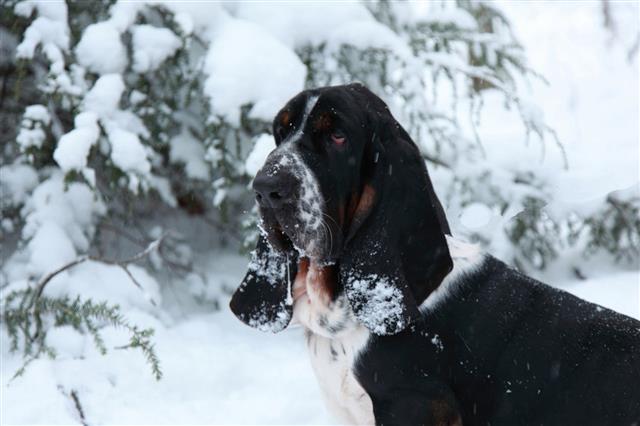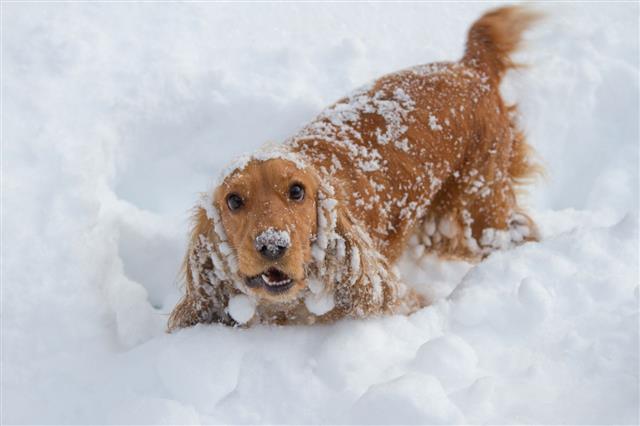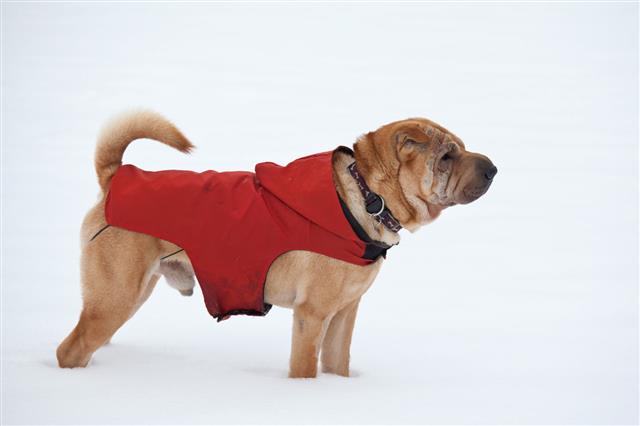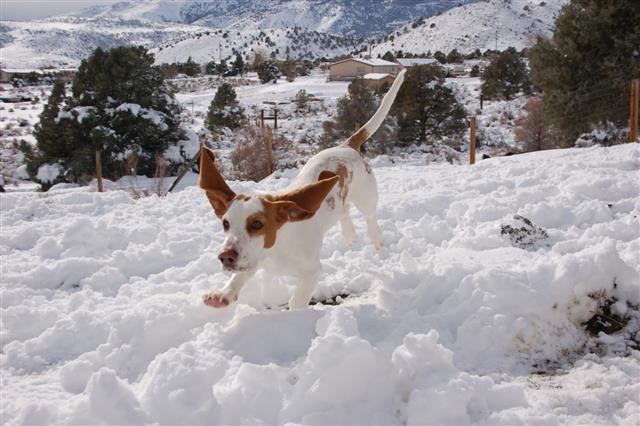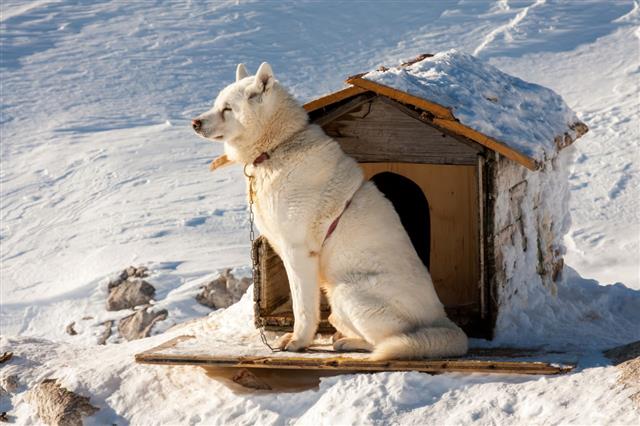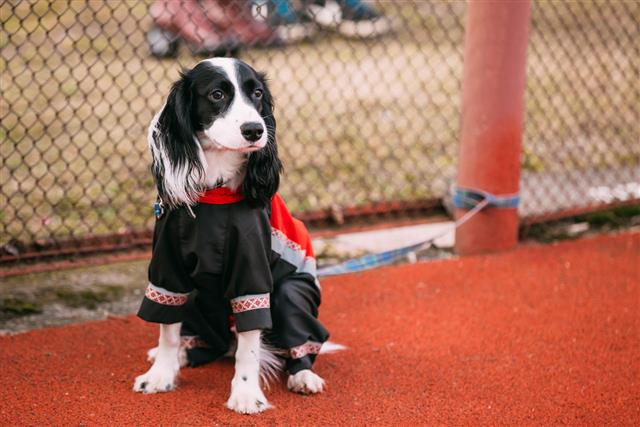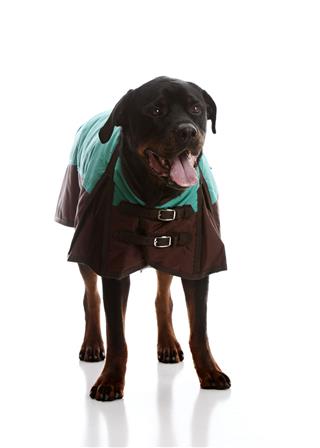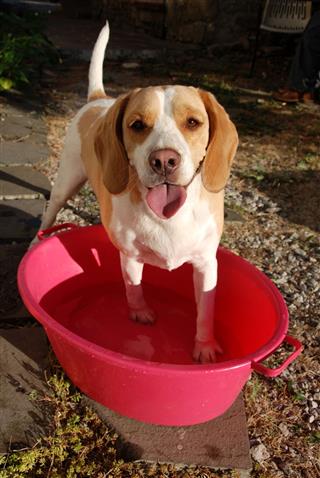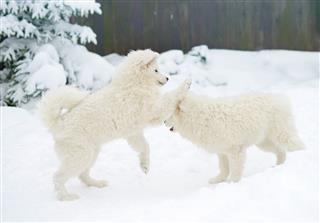
A pet dog infected with cold viruses exhibit runny nose, runny eyes, coughing and sneezing along with other respiratory symptoms. Getting rid of a dog’s cold is concentrated on providing supportive care and adopting natural remedies.
Similar to humans, dogs do contract upper respiratory tract infections like common cold and flu. The causal pathogens are different from those responsible for human cold. In majority of the cases, parainfluenza virus and coronavirus group 2 are responsible for causing canine cold. Besides these, cold is also resulted due to infections by Bordetella bronchiseptica and adenovirus type-2. If cold in dogs is left untreated, this infection may progress to pneumonia and other chronic ailments.
Cold Symptoms in Dogs
The symptoms of canine cold are not serious or life-threatening, but they surely make your pet weak. In case, your pet dog has contracted any of the cold virus, he will manifest the typical symptoms that we experience during a cold episode. But, fever or running high temperature is seldom present. If it is so, influenza is suspected and you need to take him to a veterinarian.
The notable symptoms of canine cold include the following:
- Runny nose
- Coughing
- Sneezing
- Watery eyes
- Reduced activity
- Loss of interest in food
- Chest congestion
It is to be borne in mind that canine cold is extremely contagious. The pathogens (both bacteria and virus) are spread through mucus secretions of an infected pet. Also, touching surfaces contaminated with respiratory droplets of a sick dog is another route for spreading canine cold to healthy dogs. So, consider all these aspects, and do not neglect the symptoms. Special attention is needed for canine cold in puppies and older dogs, as they have a weak immune system.
How to Get Rid of a Dog’s Cold
Treating your dog’s cold symptoms promptly requires you to act fast without delay. So, keep a close eye over your pet’s health, especially during the cold and flu season. While attending a dog with cold, the first and foremost thing is to quarantine him. Of course, you should take your pet out for morning and evening walks, but isolating him from other pets is a practical solution to contain pathogens.
For your understanding, effective tips on how to get rid of a dog’s cold are discussed below.
- Steam treatment is an effectual remedy to deal with canine cold symptoms. It has many benefits, including quick draining of mucus, easy breathing, reducing cough and clearing clogged airways. For giving steam therapy, allow your pet to stay in the bathroom filled with steam for some time.
- Needless to remind, you should feed lots of water and healthy fluids to your pet. They help in diluting mucus and hydrating the body. Feeding fluids may not be an easy task, but you can spend more effort by preparing chicken broth or soup with bones for increased flavor and taste.
- Change in appetite and losing interest in food are obvious signs in a dog down with common cold. As a responsible pet owner, encourage your dog to have healthy foods and offer his favorite food items. This helps in keeping the dog’s immune system strong, thus ensuring quick recovery.
- A dog suffering from common cold often experiences difficulty in breathing and stuffiness. These are caused due to congestion of the airways with excess mucus secretion. If you notice the same in your pet, run a humidifier to increase humidity level in the room, where he sleeps or spends most of his time.
- In order to prevent secondary infection, make sure that you keep your furry companion warm and comfortable. Also, staying warm allows your pet to breathe freely. Exposure to very low temperature and cold air is strictly not recommended. So, you can reduce the amount of time spent in parks or outdoors.
- Speaking about remedies for getting rid of a dog’s cold, colloidal silver is touted as a natural formulation for canine cold treatment. The feeding dose depends on the age and overall health condition of the pet. While large healthy dogs require 1 teaspoon of the same, ½ teaspoon is sufficient for puppies and older dogs.
For every pet owner, providing the best treatment for a dog’s cold is a priority. If the symptoms don’t improve even after following the above tips, it is high time to get your pet examined by the vet. Most likely, the veterinarian will prescribe vitamin supplements, cough suppressant and antiviral medications for a prompt recovery.
